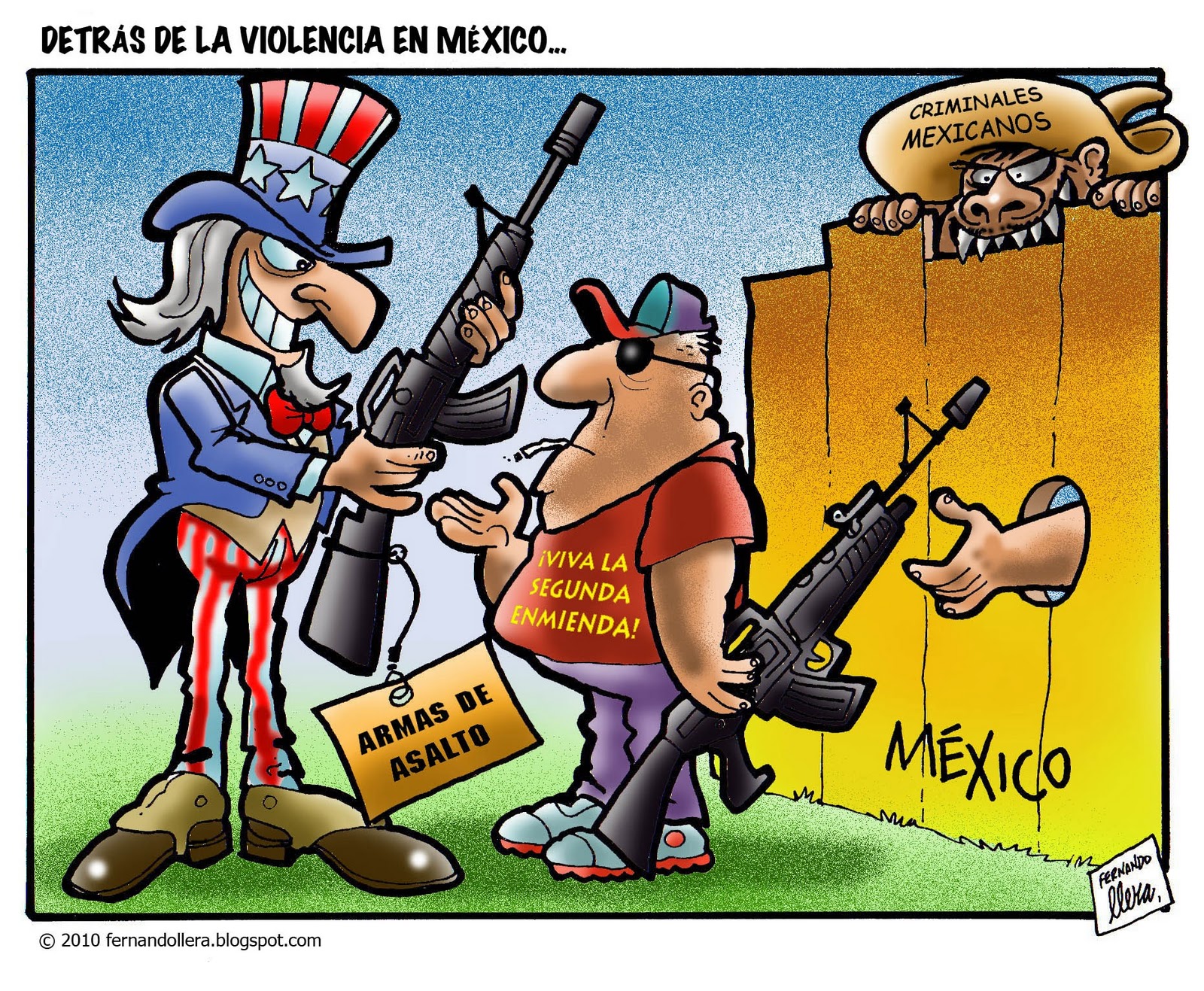
A study conducted by the Mexican Senate claims that some 253,000 illegal American weapons enter the country every year.
The wall between Mexico and the U.S. can stop neither people nor bullets. Despite the fact that Donald Trump hasn’t ceased repeating since before and during his candidacy that Mexican people are “rapists and criminals” who bring crime into their own country, the truth is that one of the main threats to life on the southern side of the Río Grande is the illegal traffic in weapons from the U.S. According to the report, “Weapon control in the U.S. and its implications for Mexico” by the Gilberto Bosque International Research Center of the Mexican Senate, every year more than 253,000 contraband weapons cross the border between both countries, and the report estimates that these weapons were used in 56 percent of the 57,000 homicides committed in Mexico between 2013 and 2016, data backed by the Government Accountability Office and by the American Friends Service Committee. There aren’t any official statistics, but it is estimated that there are some 15 million weapons throughout Mexico, 13 million of which are illegal. This may give us a hint of the extent of the problem.
Although Mexico has some of the strictest gun regulations on the planet, drug cartels and criminal organizations won’t find any obstacles when it comes to stocking up guns imported from their northern neighbor and staining the country with blood with their misdeeds, assaults, fights over territory and extortion. The result is that 2017 − not included in the report − has been one the most violent years in history with almost 27,000 dead (20.5 homicides for every 100,000 citizens) and places like Baja, California or Cancún, which were previously paradises of tranquility, are now figuring among the tabloid newspapers’ front pages. According to the research, half of the guns confiscated between 2009 and 2014 were semiautomatic rifles such as the AK and the AR varieties − the ones preferred by drug barons − coming from the southern states of California, Texas and Arizona, where a significant number of the country’s weapon manufacturers are located. “These three border territories harbor more than 15 percent of traffickers and licensed firearms dealers,” the document claims. In particular, California and Texas alone account for some 5 million registered guns.
The business of violence is very profitable since, even if some states are trying to restrict access to these kinds of weapons, it is still very easy for drug traffickers and Mafia groups to obtain this type of merchandise at gun shows in the U.S., where criminal records are not tracked, or through straw man purchases. The document also recalls how in 2017, several federal congressmen requested that necessary measures to stop illegal traffic be adopted, and notes declarations by Trump and the Mexican president, Enrique Peña Nieto, in which they both acknowledged the magnitude of the problem and the urgency of establishing controls on the southern border. This is something that is still pending, though. Meanwhile, a study conducted by the University of San Diego in California estimates that the annual profit from illegal weapon traffic is some $127 million in 2012 alone, not including legal sales to security forces.
The studies conducted by the Mexican Senate remind us that more than 80 percent of all the guns flowing into Central America, which is one of the most violent regions in the world, as well as 60 percent of those that can be acquired on the “deep web,”* come from the U.S. These studies also remind us how Trump has tried to loosen the regulations in order to facilitate the sale of arms to foreign governments. “Weapons have a harmful impact on the bilateral relationship,” the document notes, urging both governments to “face the problem through measures that can be approved by either the American Congress or in the border states, since this situation contributes to the exacerbation of criminal organization violence rates, especially during the beginning of the so-called ‘War on Drugs.’” It concludes by stressing that “weak regulations and high taxes on imports and exports” are some elements contributing to this increase. In summary, if Trump is concerned about the “bad hombres” on the other side of the border, he might start by not providing them with easy access to guns.
*Editor’s note: The “deep web” refers to the part of the World Wide Web which is not indexed by search engines because it is hidden behind firewalls, protected by passwords or otherwise restricted.

Leave a Reply
You must be logged in to post a comment.